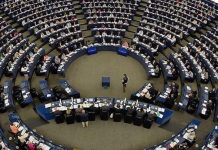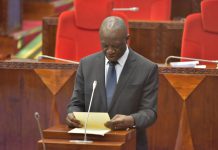Author: BERNARD LUGONGO
AfricaPress-Tanzania: TANZANIA’S health sector annual budget has improved by an average of 123.3bn/-over a five-year period, statistics indicate.
The data shows that in the financial year 2015/16, the budget for the sector was 780.7bn/- but during the five years of the Fifth Phase government, it stood at an average of 905bn/- , which is an increase by 15.7 per cent.
The annual health budget allocation trend was 780.7bn/- in 2015/16, 796.1bn/- (2016/17), 1.07tri/- (2017/18), 866.2bn/- (2018/19), 959.1bn/- (2019/20) and 900bn/- in the coming financial year.
To make the figures have more meaning to Tanzanians, the budget for procuring medicines has tremendously gone up from just 31bn/- in 2015 to 270bn/- this year.
“We have strengthened availability of drugs and medical equipment, whereby we have increased its budget from 31bn/- in 2015 to 270bn/- currently,” stated President John Magufuli, when he dissolved the 11th Parliament in Dodoma on June 16, this year.
Prior to President’s remarks on the health sector, Prime Minister Kassim Majaliwa spoke on the same achievement the previous day, when addressing Parliament.
He noted that over the five-year period, the government spent a total of 3.01/-tri to finance health services.
The major funding was devoted to the construction of health infrastructures by building 198 new dispensaries and repairing 487 health centres.
Major maintenance was undertaken on 69 district hospitals and 10 regional referral hospitals during the five-year period.
“The increase in budgets for medicines and improvement of health infrastructures has brought about a big revolution in the health sector by improving the health of Tanzanians,” Prime Minister Majaliwa stated.
He pointed out that efforts made to improve health infrastructures and increased purchase of drugs and medical devices were in implementation of the Fifth Phase government’s objective of ensuring that every Tanzanian is given a right to treatment.
In 2016/17, the Parliament endorsed 796bn/- for the Ministry of Health, Community Development, Gender, Elderly and Children.
Of the amount, 277bn/- was earmarked for recurrent expenditure and 518bn/- for financing development projects in the sector.
In the following year, the budget recorded a steep rise to 1.07tri/-, with recurrent expenditure getting a share of 291bn/-.
During this year, the development budget had the lion’s share of 785bn/-, out of which 336.3bn/- was from domestic sources.
The sector’s budget for 2018/19 was 866.2bn/- as the ministry planned to spend 304.4bn/- on recurrent budget and the remaining 561bn/- on development budget.
In fact, the budget had shot up again to 959.1bn/- , with allocation of 415bn/- to recurrent budget and 544bn/- to financing implementation of health projects.
When tabling the ministry’s 900bn/- budget for 2020/21recently, which the Parliament later endorsed, the sector Minister, Ms Ummy Mwalimu, said the ministry plans to collect 467.8bn/- out of which 155bn/- would come from domestic sources, which is an increment of 21 per cent compared to the previous year.
She told the Parliament that it plans to spend a total 539.1bn/- on the recurrent budget in the next financial year and the remaining 360.9bn/- for development budget.







